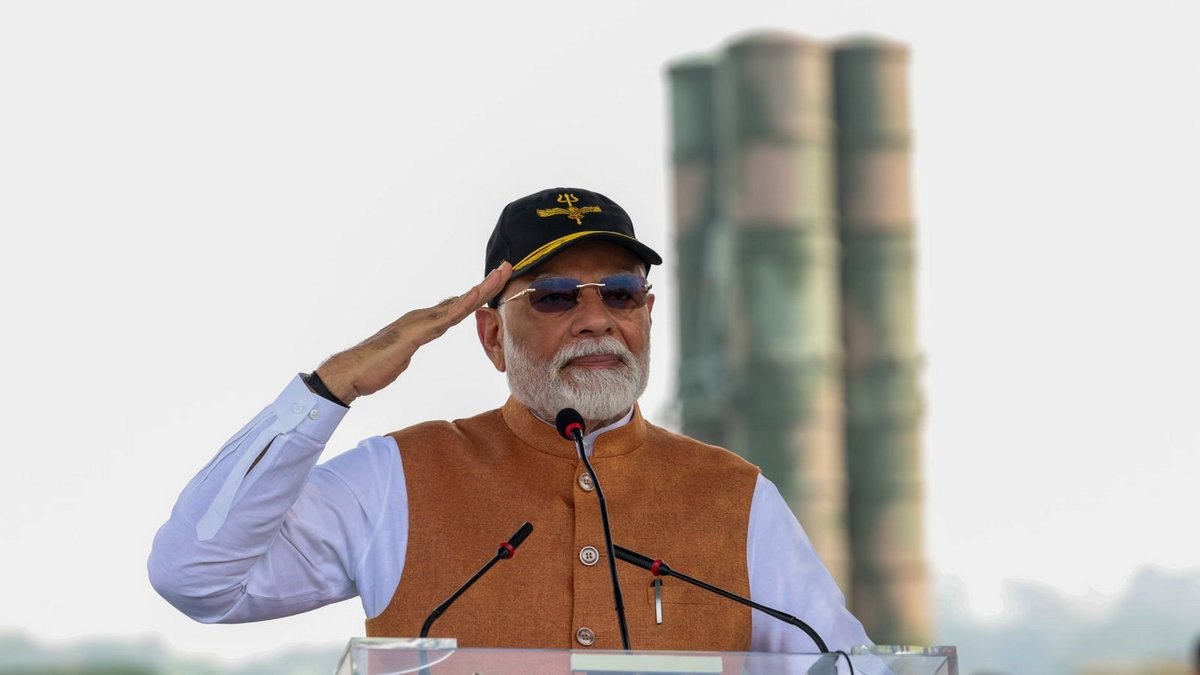Indian Prime Minister Narendra Modi Thursday (May 22) issued a stern warning to Pakistan: Its economy will have to pay a heavy price for any terrorist attack in India. The PM warned that New Delhi had adopted a new form of justice to deal with terrorism emanating from Pakistan.
“Pakistan will have to pay a heavy price for every terrorist attack … Pakistan’s army will pay it, Pakistan’s economy will pay it,” PM Modi said at his first public meeting in Rajasthan after Operation Sindoor.
The PM warned that Operation Sindoor was not mere revenge but a new manifestation of justice. “First we took the attack to their home… now we strike them outright,” he said.
This message, delivered in the wake of the deadly Pahalgam attack, marks a significant escalation in India’s counter-terror doctrine and signals a willingness to use a broad array of economic, diplomatic, and strategic tools to pressure Islamabad.
What is in India’s toolkit against Pakistan? Let’s have a look.
Suspension of the Indus Waters Treaty (IWT) and water leverage:
Following the Pahalgam attack, India suspended its adherence to the Indus Waters Treaty, a critical water-sharing agreement that has governed the allocation of the Indus river system since 1960, and survived three serious wars of the 20th century.
India controls the flow of the eastern rivers — Sutlej, Beas, Ravi — and, under the treaty, allows Pakistan use of the western rivers — Indus, Chenab, Jhelum.
By suspending the treaty and advancing water diversion projects, India can significantly reduce water available to Pakistan, which is already facing acute water stress.
While large-scale diversion requires years of infrastructure development, the suspension itself is a potent political signal and can cause immediate uncertainty for Pakistan’s agriculture and industry.
Impact Shorts
More ShortsCommerce: Trade and economic sanctions
India has banned all imports from Pakistan, shut down its airspace to Pakistani aircraft, and closed the Attari border — effectively severing direct trade ties.
The Modi government has made it clear there will be no trade or talks with Pakistan, except on the issue of Pakistan-occupied Kashmir (PoK) and stopping terrorism.
India is also considering halting the supply of critical goods, such as pharmaceuticals, which Pakistan would struggle to replace at a reasonable cost.
Stopping critical supplies, particularly in the health sector, is bound to trigger a crisis, higher import costs in Pakistan.
Diplomacy: Pakistan’s isolation through global pressure
India has intensified its global campaign to expose Pakistan’s terror links, with all-party parliamentary delegations engaging world leaders to highlight Islamabad’s involvement in attacks.
India is leveraging its growing international stature to press major powers — including the US, EU, Russia, China, Saudi Arabia, Japan, and the UAE — to cut arms sales and financial support to Pakistan.
India’s market clout is a big tool that New Delhi can use as leverage, especially with countries such as China, which is both Pakistan’s chief arms supplier and a major trading partner of India, and the US or Russia.
Military muscle as strategic deterrence
PM Modi has said the government has granted the Indian armed forces full operational freedom, demonstrated in recent swift and decisive strikes that dismantled Pakistani defences and shut down key military assets such as Sargodha, Noor Khan or the Rahim Yar Khan airbase. He also said that Operation Sindoor is only in a pause mode, it has not been called off.
India’s new doctrine rejects nuclear blackmail and treats both terrorist groups and their state sponsors as equal adversaries.
India also fought back against Pakistan’s information warfare through a robust fact-checking mechanism. For instance, India’s Press Information Bureau launched a special drive to bust false claims made by Pakistan or pro-Pakistan handles across social media platforms.
India has taken steps to be a step ahead of Pakistan in the information domain, countering Pakistani disinformation and highlighting indigenous resistance within Pakistan, particularly in Balochistan.
Strategic communication has been used to consolidate domestic support and shape international perceptions, further isolating Pakistan diplomatically.
Any challenges for India?
India’s challenge will be to maintain international support, manage escalation risks, and ensure that these measures serve long-term strategic objectives without unintended consequences.
Pakistan sits on a geostrategic location that excites every Western power that aspires to keep an eye on China, central Asia, sensitive West Asia and also Russia. A pliable Pakistan is therefore something that every global power sees as useful asset. Trump’s recent sudden soft approach towards Islamabad is another indication why Islamabad keeps featuring in the West’s scheme of things.
PM Modi’s warning, however, signals a new era in India’s response to cross-border terrorism, where economic ruin is positioned as a credible threat for Pakistan should it continue to support terror. India’s toolkit — ranging from water leverage and trade bans to global lobbying and narrative control — marks a decisive shift in the regional/South Asian geopolitics, with the potential to reshape the deterrence for years to come.


)

)
)
)
)
)
)
)
)



